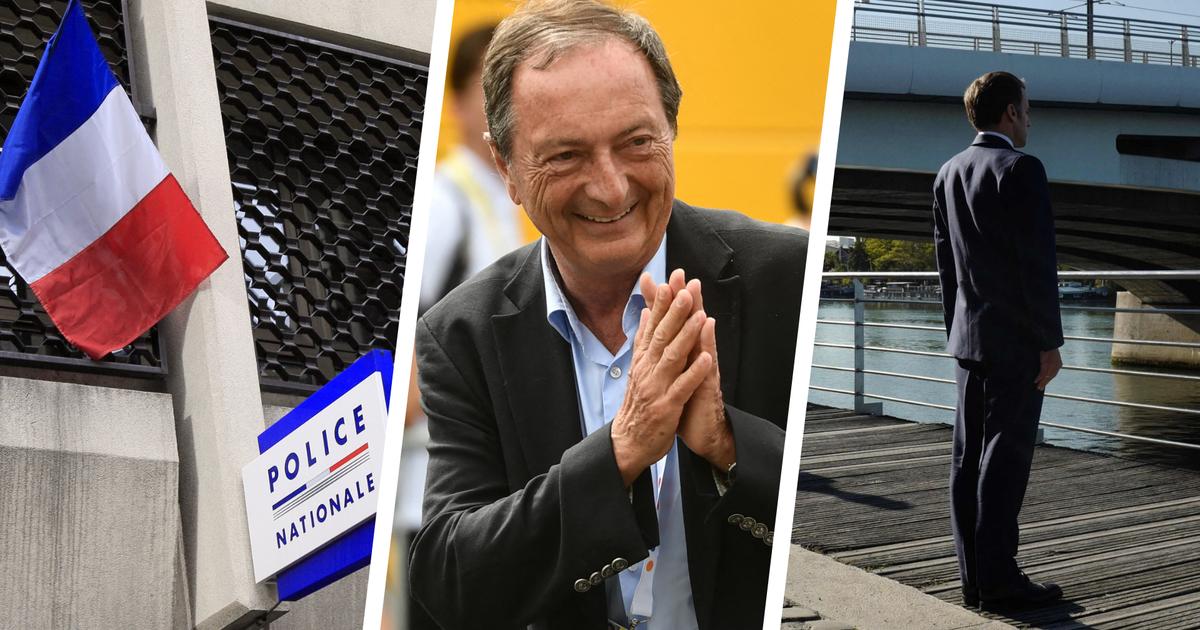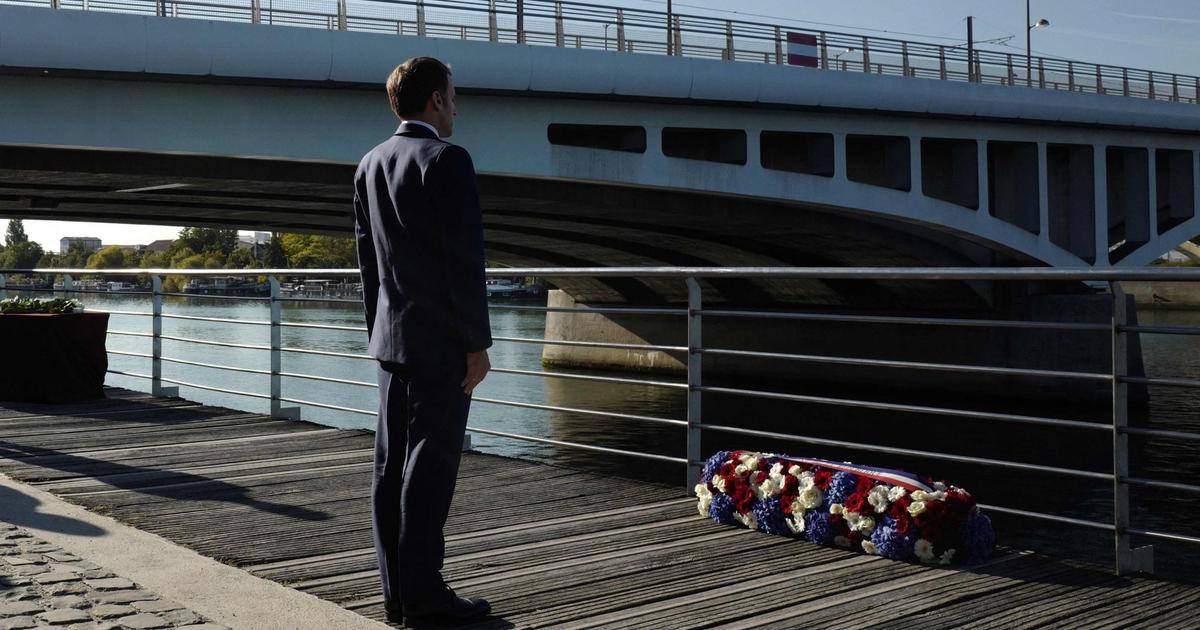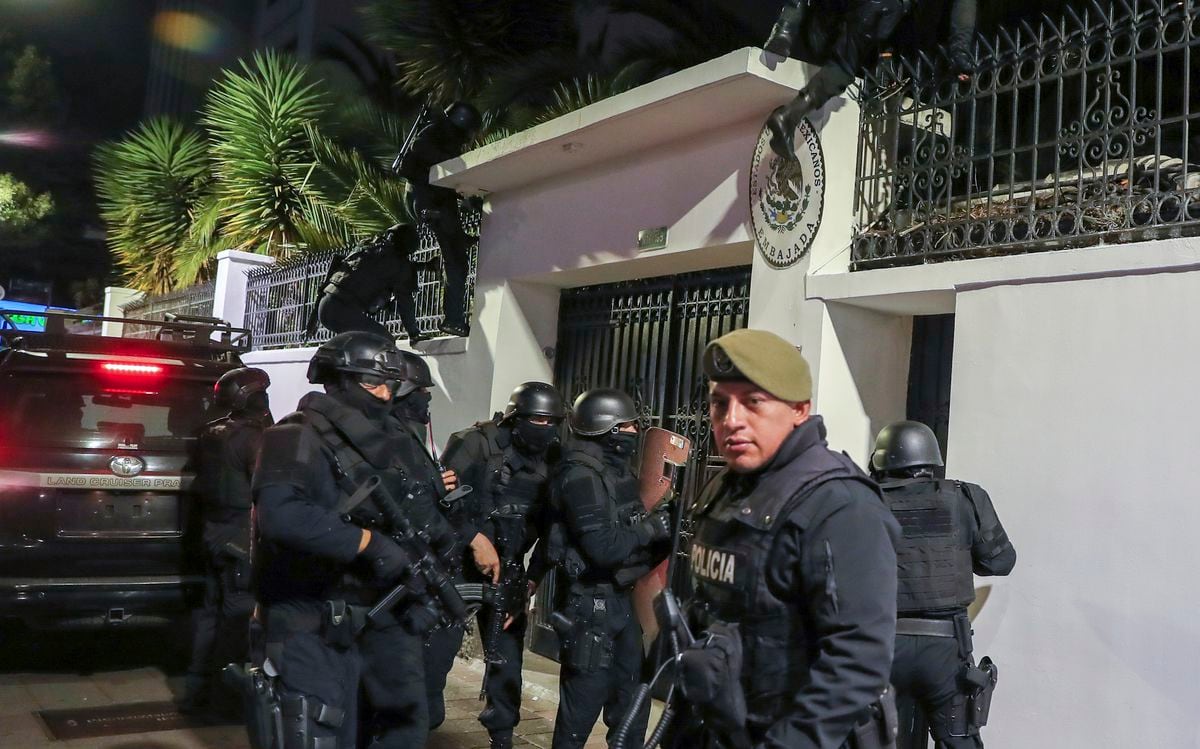The moment is meant to be solemn. And silent. Almost no noise betrays the arrival of Emmanuel Macron around 4 p.m. this Saturday afternoon in Colombes (Hauts-de-Seine) at the foot of the Bezons bridge, lit by the sun. A place of the most symbolic and historical since it is in particular here that were recovered several bodies thrown in the Seine, sixty years ago. In a context of very strong tensions between Paris and Algiers, the president denounced Saturday the crimes committed during the bloody repression of a demonstration of Algerians on October 17, 1961. Crimes "inexcusable for the Republic", perpetrated "under the 'authority of Maurice Papon', then prefect of police.
This is the first time that a President of the Republic has participated in a ceremony in memory of the Algerian victims of the bloody repression that took place in Paris 60 years ago.
The Head of State did not speak during his trip because the moment, too, is intimate.
Only about forty guests are present.
Among them, local elected officials, association representatives but also five children and grandchildren of victims of that night of October 16, 1961.
A large wreath of official blue-white-red flowers of remembrance, adorned with a ribbon reading "The President of the Republic" is placed along the river.
The president remains standing for long minutes, his hands clasped, in meditation in front of the latter.
"Words are strong, but insufficient"
The Élysée opted for a press release published in the wake. “The repression was brutal, violent, bloody, we can read. Nearly 12,000 Algerians were arrested and transferred to sorting centers at the Coubertin Stadium, the Sports Palace and other places. In addition to many wounded, several dozen were killed, their bodies thrown into the Seine. Many families never found the remains of their loved ones, who disappeared that night. "
This story, without a doubt, tells the truth. But is he telling the whole truth? "The words are strong, but they are insufficient, slices the historian Gilles Manceron. We are talking about crime, but the police chief is the only one appointed. We are not talking about state crime, while the responsibilities are to be sought up to the highest summit of the state. The order was given to suppress the demonstrators. "After the ceremony in Colombes, the Franco-Algerian actor and director Lyès Salem, was more nuanced:" It's important to be there. We felt a certain emotion. I find this gesture to be quite clear recognition ”.
France looks at its entire history with lucidity and recognizes the clearly established responsibilities.
The crimes committed on the night of October 17, 1961, under the authority of Maurice Papon, are inexcusable for the Republic.
To the victims, today we pay tribute.
pic.twitter.com/QnneJUyUYp
- Emmanuel Macron (@EmmanuelMacron) October 16, 2021
The subject is sensitive for the majority, in a context of very strong tensions between Paris and Algiers. The tribute was not paid to the places which marked the repression the most, at the level of the Saint-Michel bridge in particular. Also, it was held the day before the anniversary date of the drama. To desensitize the event? "Commemorations are traditionally organized, whether in Paris or in the suburbs, on October 17, morning, afternoon, and the President of the Republic did not wish to replace these various commemorations", justifies the entourage of the president of the Republic.
The presidential speech caused a reaction in the political sphere.
The left, which demanded the recognition of a "state crime", was not heard.
For her part, Marine Le Pen denounced "these repetitive unsustainable repentances".
A speech quite close to that given by Eric Zemmour.
"Macron has the art of remaking the history of France always against France", declared the latter in Béziers.
Emmanuel Macron had asked "forgiveness" from the harkis.
Gilles Manceron believes that he could have done the same with the victims of the October 17 repression.
“Recognition is much more important than apologizing,” says the Élysée.
Forgiveness implies that whoever you ask for it, it's literal, grants it to you.
60 years later, the wounds do not seem to have completely healed.








